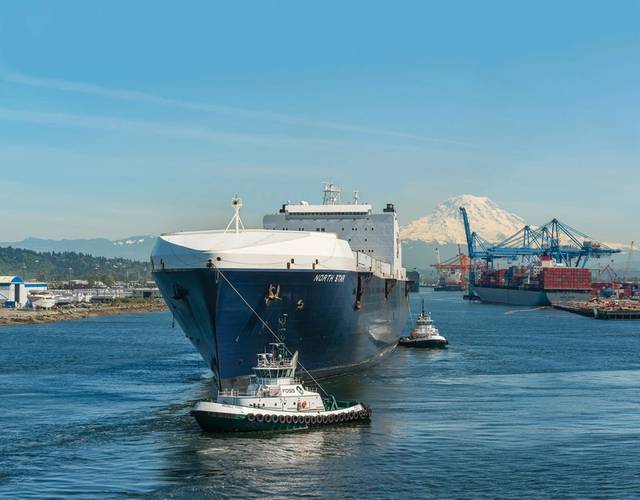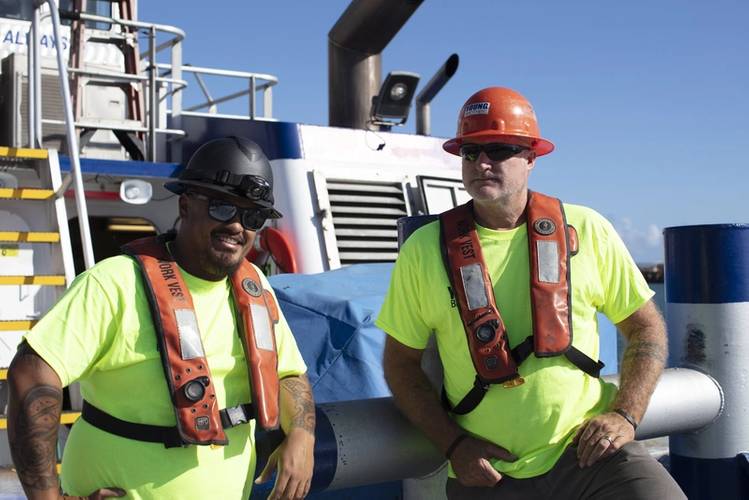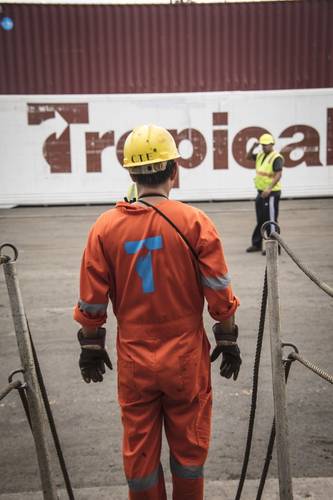Saltchuk Chairman Tabbutt Prioritizes Workforce Development
With a diverse maritime and logistics operation supporting more than 8,000 careers on land and at sea, Saltchuk has a robust workforce development initiative across its brands. Mark Tabbutt, Chairman, Saltchuk, discusses a pair of specific recent investments in Puerto Rico, as well as workforce development as a corporate imperative.
Watch the full interview with Mark Tabbutt, Chairman, Saltchuk, on Maritime Reporter TV:
Saltchuk is a driving force on the U.S. maritime scene, a diverse maritime and logistics conglomerate with revenues topping $5 billion in 2024 and a workforce of approximately 8,900 employees across 32 subsidiary companies, Saltchuk’s influence spans freight movement, energy distribution, and marine services. At the helm is Mark Tabbutt, Chairman, who has been a champion in addressing a growing challenge within the maritime sector as a whole: workforce development.
The maritime sector is in a ‘hurry up but slow down’ mode at the moment, as there are a number of technological evolutions – from automation to full autonomy – that offer the promise of amazing new levels in removing humans from dull, dangerous and dirty jobs. But in reality, we are still a generation or more away from fully leveraging the tech, and today more than ever attracting and retaining the current and next-generation is paramount to business continuity and success, particularly as the average age of the current maritime workforce continues to get older, with a vacuum of younger talent in the pipeline.
As Saltchuk looks to the future, ensuring a pipeline of skilled maritime professionals is a top priority. To that end, the company has made a strategic investment in workforce development on the island of Puerto Rico, partnering with two universities to bolster local talent, amongst several other strategic investments in workforce development.
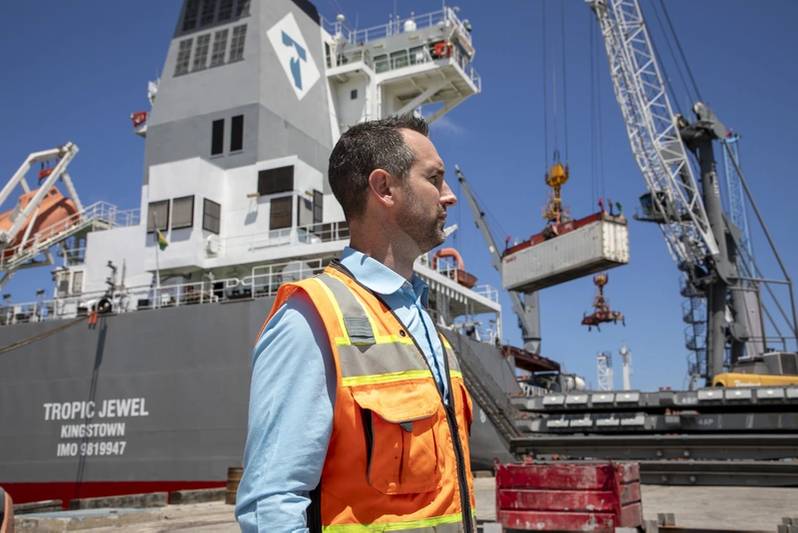 Tropical Shipping HSQE Manager Matt King.
Tropical Shipping HSQE Manager Matt King.
Images courtesy Saltchuk
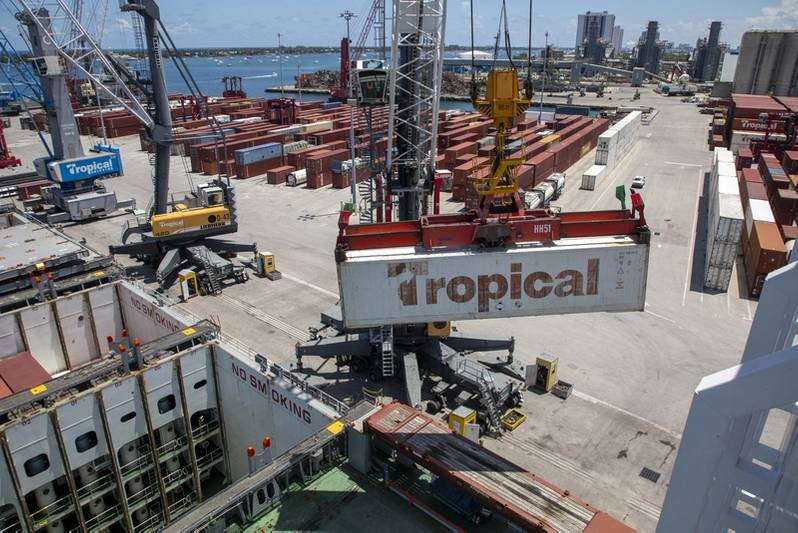 Tropical Shipping is one plank in the Saltchuk maritime and logistics platform.
Tropical Shipping is one plank in the Saltchuk maritime and logistics platform.
Images courtesy Saltchuk
Why Puerto Rico, and Why Now?
Saltchuk's involvement in Puerto Rico dates back to 1998, when the company first began providing essential services to the island. Over the years, the company has expanded its operations, recognizing Puerto Rico’s potential as a logistics hub within the Caribbean.
Saltchuk’s presence in Puerto Rico is multifaceted. The company operates under several banners, including Tote’s U.S. flag operation from the mainland, Tropical’s foreign flag operation connecting the island to other Caribbean destinations, and asset-light logistics companies like Aqua Gulf and Caribtrans. Most recently, the addition of StratAir’s air cargo service from Miami has further solidified Puerto Rico’s role as a logistics center.
In 2024, Saltchuk initiated two key educational partnerships—one with the University of Puerto Rico at Mayaguez and another with the Polytechnic University of Puerto Rico. According to Tabbutt, this dual investment addresses the distinct educational needs of the region while aligning with Saltchuk's commitment to fostering local talent.
“We started by asking a fundamental question,” said Tabbutt. “Is there a need to provide higher education for Puerto Ricans on the island initially? And then, hopefully over time, draw from the whole Caribbean.” After consulting with the Boston Consulting Group, Saltchuk determined that there was indeed a significant demand.
The University of Puerto Rico at Mayaguez, with its 14,000 students, had already conceptualized a Center for Transportation and Logistics but lacked the necessary funding to bring it to life. Saltchuk stepped in, inspired by the university’s proactive approach and enthusiasm. Meanwhile, the Polytechnic University, which primarily serves working professionals seeking to advance their education, presented a different but equally compelling case. Rather than choosing one over the other, Saltchuk opted to support both, recognizing their complementary roles in workforce development.
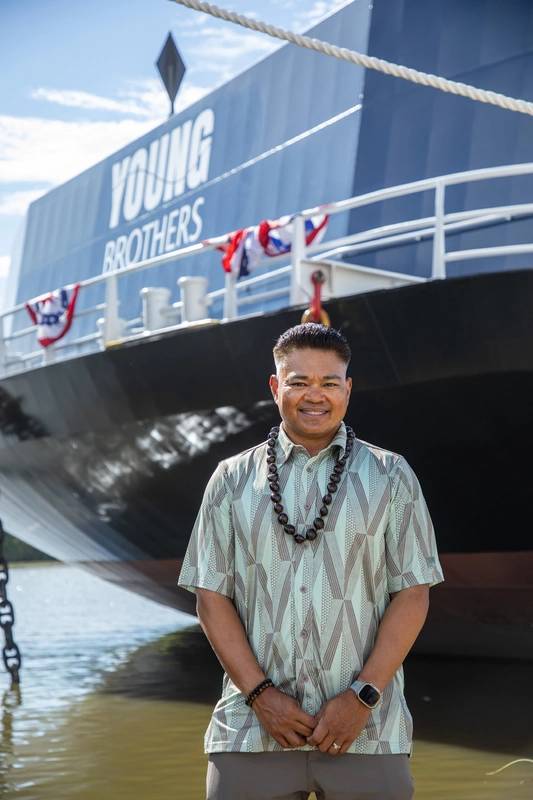 Young Brothers President Jan Ana.
Young Brothers President Jan Ana.
Image courtesy Saltchuk
”What we've found is that Puerto Rico has a growing amount of inter-island freight,” said Tabbutt. “Every year that number's going up, which indicates that they are growing as a hub for the Caribbean and so there's more and more warehousing and then distribution out of Puerto Rico, down island. We are happy to serve that growing need.”
Success for Saltchuk's Puerto Rican educational initiatives will be measured through key performance indicators (KPIs) developed in collaboration with the universities. An advisory board, chaired by Eduardo Pagan, Vice President & General Manager, TOTE Maritime Agency Puerto Rico, is already forming to oversee progress. The goal is to have 400 to 500 students enrolled within the next few years, with internships and hands-on projects integrated into the curriculum.
“We see it as a pipeline for everybody to access new talent and keep local,” said Tabbutt. “And yes, we expect for students in the program this year in 2025.”
Saltchuk's focus on workforce development extends beyond Puerto Rico. In 2024, the company invested $4 million in educational and youth initiatives through various local advisory committees. In Seattle, FOSS has supported the new maritime high school, while OSG has funded leadership programs for women in the maritime industry. TOTE also maintains partnerships with maritime academies.
“We have an aging workforce, and we have to get ahead of that,” Tabbutt said.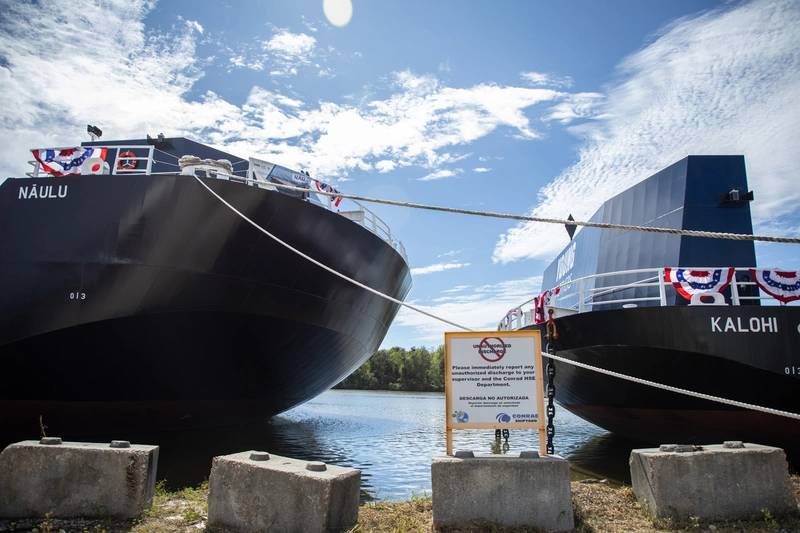 New Young Brothers barges.
New Young Brothers barges.
Image courtesy Saltchuk
Meeting Changing Demands
The maritime sector is facing new challenges that require a modern workforce. Whether it’s the integration of advanced communication technologies on vessels or the focus on safety and community, Saltchuk aims to attract workers who value innovation and service.
“The central theme that we have, even though we do different services, is everybody's serving other people,” said Tabbutt. “Whether they're serving people out in Western Alaska, Ryanair flying out to a tiny village to deliver groceries and mail, delivering fuel in remote parts of Alaska, our purpose is to serve other people and to create an environment that make people feel safe.”
Investment in workforce development transcends simply attracting the next generation, because once a maritime company has brought in the talent it needs to power its future, it obviously needs to keep them. “We recognize a growing need [for] investments throughout the organization,” said Tabbutt. “Starlink [for example] on our vessels is a game changer, as our crew can FaceTime live their family members and connect with them. We've tried hard to create an environment that people want to work in. Our purpose is to serve other people and to create an environment where people feel safe and valued. That’s the litmus test for us.”
Ultimately, Saltchuk’s appeal lies in its commitment to building not just careers but lasting, meaningful professional journeys. “Our goal is that when somebody spends a career at Saltchuk, they look back and feel like they were part of something truly impactful,” Tabbutt said. By investing in education and local talent, the company ensures that its legacy will endure through the next generation of maritime professionals.
Watch the Saltchuk Corporate Video to learn more about careers with Saltchuk:










